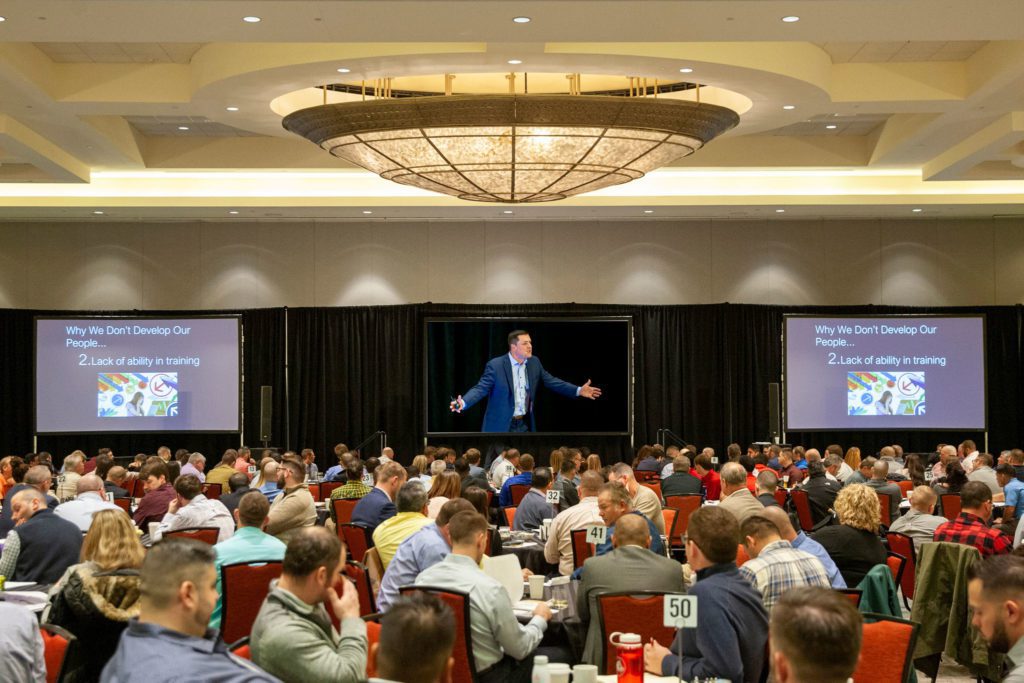By Chad Prinkey, Consultant, Neuberger & Co.
 With Ruppert’s number one value being its people, the expectation that the company “grows people” is a source of pride. With that in mind, what employees deserve and expect from their managers should be a dedication to providing opportunities and fulfilling work. Dedicating the time and energy necessary to develop employees through training is a part of that promise. This means that as a manager, your employees are your internal customers, and we owe them a service when they choose Ruppert for their career. That “service” ranges from training and reviews to setting expectations and empowerment. And while our intentions are often good and we intend to effectively onboard and train new team members, there are often competing challenges we use to excuse ourselves from our training roles—which ultimately lets our internal customer down. Let’s explore and challenge these reasons:
With Ruppert’s number one value being its people, the expectation that the company “grows people” is a source of pride. With that in mind, what employees deserve and expect from their managers should be a dedication to providing opportunities and fulfilling work. Dedicating the time and energy necessary to develop employees through training is a part of that promise. This means that as a manager, your employees are your internal customers, and we owe them a service when they choose Ruppert for their career. That “service” ranges from training and reviews to setting expectations and empowerment. And while our intentions are often good and we intend to effectively onboard and train new team members, there are often competing challenges we use to excuse ourselves from our training roles—which ultimately lets our internal customer down. Let’s explore and challenge these reasons:
 Excuse #1: “We don’t have enough time to train our people.” This most common excuse is rooted in reality. There is no question that our managers have a lot on their plates and that, despite good intentions, they struggle to find the time to train employees. However, upon an investigation of where managers are spending their time, one may find that a large percentage of a manager’s time is spent solving avoidable problems and performing tasks that should have been effectively delegated to a well-trained team. There are many business cases that demonstrate that an investment in training and developing team members yields a return of time back in managers’ calendars. Feeling overstressed? Believe it or not, one of the very best things you can possibly do with your limited time is to invest in the development of the people who are working under you.
Excuse #1: “We don’t have enough time to train our people.” This most common excuse is rooted in reality. There is no question that our managers have a lot on their plates and that, despite good intentions, they struggle to find the time to train employees. However, upon an investigation of where managers are spending their time, one may find that a large percentage of a manager’s time is spent solving avoidable problems and performing tasks that should have been effectively delegated to a well-trained team. There are many business cases that demonstrate that an investment in training and developing team members yields a return of time back in managers’ calendars. Feeling overstressed? Believe it or not, one of the very best things you can possibly do with your limited time is to invest in the development of the people who are working under you.
Excuse #2: “We’re not good trainers.” While not everyone will be a world-class trainer, through the application of a couple of simple techniques you can elevate the quality of your training and begin seeing an immediate impact on your team. First, make sure that training is more of a conversation than a speech. Many attempts at training are really just managers telling people how to do things, which tends not to stick. Adults learn best interactively, and they need to feel like their perspective is being considered. Second, encourage people to challenge what you’re teaching them. When people feel that they’ve had a chance to push back on what they’re learning, it increases their ownership of the material. Your goal should not be blind compliance, but instead your approach should to help your employees discover the best ways to do their work and enhance their career.
Excuse #3: “We don’t believe in our employees.” Why would you train someone that you don’t think can get better? In fact, the better question is why would you hire and keep someone that you don’t believe can get better? You are not allowed to give up on your people and still be responsible for them. If you’ve gotten to that point, you are not doing either party any good by continuing their employment. With that said, I am not advocating a policy of mass firings, but rather challenging all managers to embrace your responsibility for providing every employee the tools to be successful. Hiring someone is a huge investment for both parties. Having a supervisor participate in the process often leads to a higher level of commitment from that supervisor to the person who was just hired. Additionally, instituting a working day interview to test-drive candidates before hiring can help prevent some hiring mistakes.
As a manager at Ruppert Landscape, the care and development of your people is one of your most important responsibilities. The company culture is built on concepts like “hiring for life,” building a career, the idea that we are a family, and that there is a path for advancement. So it’s critical that once someone has joined the team that they continue to see these values and your commitment to them echoed in their daily interactions. If we think of our employees as internal customers, it may help shift our thinking to ensure we provide the same level of service that we provide to our customers. Do your best to get out of the excuse mindset with some of the issues outlined in this article and start delivering on Ruppert’s promise of growing people.